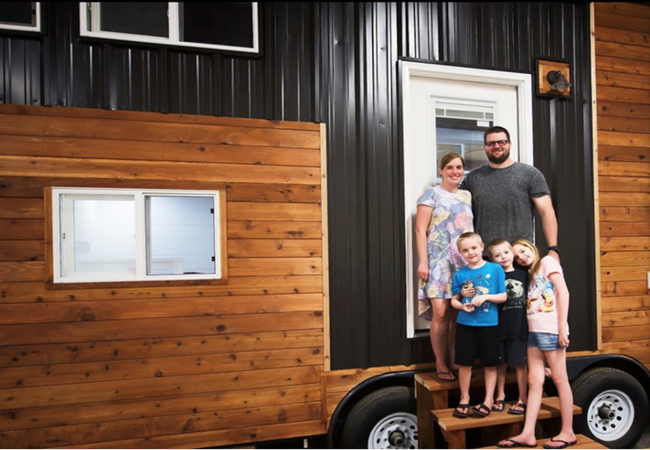If you’re a travel nurse who wants to experience new places but is also concerned about housing costs cutting into your take-home pay, this article has answers. Read on to learn about stipends and company-provided housing options. Remember that, by IRS guidelines, your housing stipend should cover the actual cost of accommodations in the location where you’re assigned to work.
Company-Provided Housing
Some travel nurse agencies provide housing through a housing department that secures short-term rental properties like apartment complexes or extended-stay hotels. These are great options for travel nurses as they take the stress out of housing searches and give them peace of mind; knowing they can count on their agency’s travel nurse housing team if they have any issues with their rental. However, first-time travelers must read their contracts carefully and consider housing options before signing with an agency.
Finding housing with a stipend can be an excellent option for travel nurses who want more control over their living situation or live in areas where company-provided housing is unavailable. It can also be a good option for travel nurses looking to save money. The cost of living in different regions can vary greatly, so a stipend may only cover part of the rent in a given area. By finding a cheaper rental less expensive than the stipend, travel nurses can save money and increase their weekly take-home pay. It’s also important to remember that when opting for a stipend, you will have to negotiate with landlords and sign a lease that may not be as short-term as your assignment. It can be stressful if your job gets canceled and you must break your lease.
Agency-Booked Housing
The easiest way for travel nurses to find housing is through agency-booked housing. Choosing this option allows you to avoid the stress of finding an apartment on your own and can save you money since utilities are often included in the rent. However, you’ll be limite in choosing what type of accommodation you want; and you may be required to sign a short-term lease (usually 12 weeks). Some agencies offer extended-stay hotels, which can provide more living space and amenities than traditional hotel rooms. However, these accommodations are only typically available in some places. You can also find furnished rentals on websites designed explicitly for travel nurses and feature properties background-checked and approved by other travelers.
Another option is to use a website that helps travelers find short-term rental properties. These sites can help you find apartments, condos, or homes within your budget. However, you should always vet these rentals thoroughly to ensure they are safe and clean. Some travelers rent a room in a house with others, which can be a great way to make friends while traveling and split the housing costs. But this can be stressful because you’ll need to find a roommate before; your assignment begins and then deal with potential problems that might arise during your time together.
Stipend
Every travel nurse has a list of non-negotiables when it comes to housing. Some prefer a central location, while others want fully furnished apartments to save on luggage. Regardless of your preferences, you need to know what they are and start looking early. Some travel nurses rent an apartment or house independently, using the stipend their recruiter gives them for housing to cover the cost. This option can be stressful and time-consuming, but it gives you the most freedom. The downside is that you may need help finding a short-term lease because landlords aren’t used to renting to travelers.
It’s also riskier if your assignment is extend or canceled. In that scenario, you could be stuck with a lease and need to pay for months of unneeded housing. In addition, if your contract is canceled, you might lose your housing stipend. Some travel nurses use sites to find a room-for-let in another person’s home. It is a great way to save money on rent and utilities, but it can be a bit dangerous because you’re dealing directly with homeowners who might need to be more reputable. Fortunately, apps allow you to search for rentals on maps; but be wary of listings that need to be verified or vetted.
Independent Housing
Many travel nurses choose to use their stipend to find housing independently. It allows them to stretch their housing stipend as far as possible while enjoying fully furnished short-term accommodation. The internet has made it easier than ever to find travel nurse accommodations, including vacation rentals and short-term lease apartments. Sites offer various options, from rustic cabins to contemporary city apartments. Some of these homes include utilities and WiFi, saving travel nurses a significant amount of money each month.
Extended-stay hotels are another option for travel nurses who wish to save even more money. Some offer amenities like gyms and pools, but others are more basic and only provide beds and kitchenettes. Travel nurses can also consider a homestay, which connects travelers with hosts who rent out rooms in their homes. Homestays appeal to travel nurses, who often prefer a more intimate living experience and want to avoid roommates; with unpredictable schedules that might interfere with sleep.
Other resources for finding travel nursing housing include:
- Facebook groups.
- Websites that list short-term rental properties.
- Maps-based apartment search engines.
When searching for travel nurse housing, you must know your preferences and go into the process with a list of non-negotiables. If you can narrow your choices, your search will be much faster and more productive!




